How Many K-pop Groups Have No Korean Members
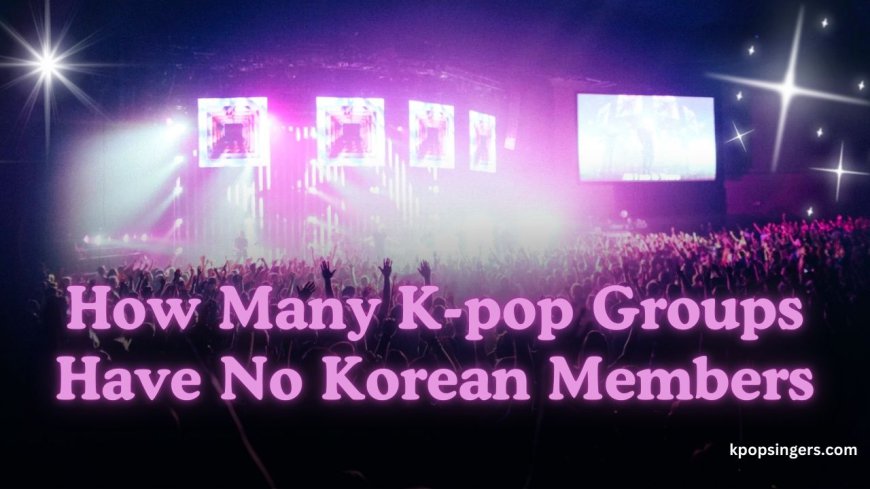
How Many K-pop Groups Have No Korean Members?
When you think of K-pop, your mind probably goes straight to sleek choreography, catchy hooks, and... well, Korean idols. But here’s the twist: the K-pop industry has gone global, and some groups are flipping the script entirely. Over the years, several groups with no Korean members at all have debuted, proving that K-pop is more about the culture, music, and vibe rather than just nationality.
Let’s dive into the world of all-foreign-member Kpop Profiles, and groups and explore what makes them stand out.
What Defines a K-pop Group Without Korean Members?
Before we get into the list, let’s clarify what qualifies as “no Korean members”:
-
Every member of the group is of non-Korean descent.
-
The group might be based in Korea, or its music style and production align with K-pop’s signature sound and aesthetic.
These groups cater to both international and Korean audiences while presenting how diverse and inclusive K-pop has become.
1. BLACKSWAN
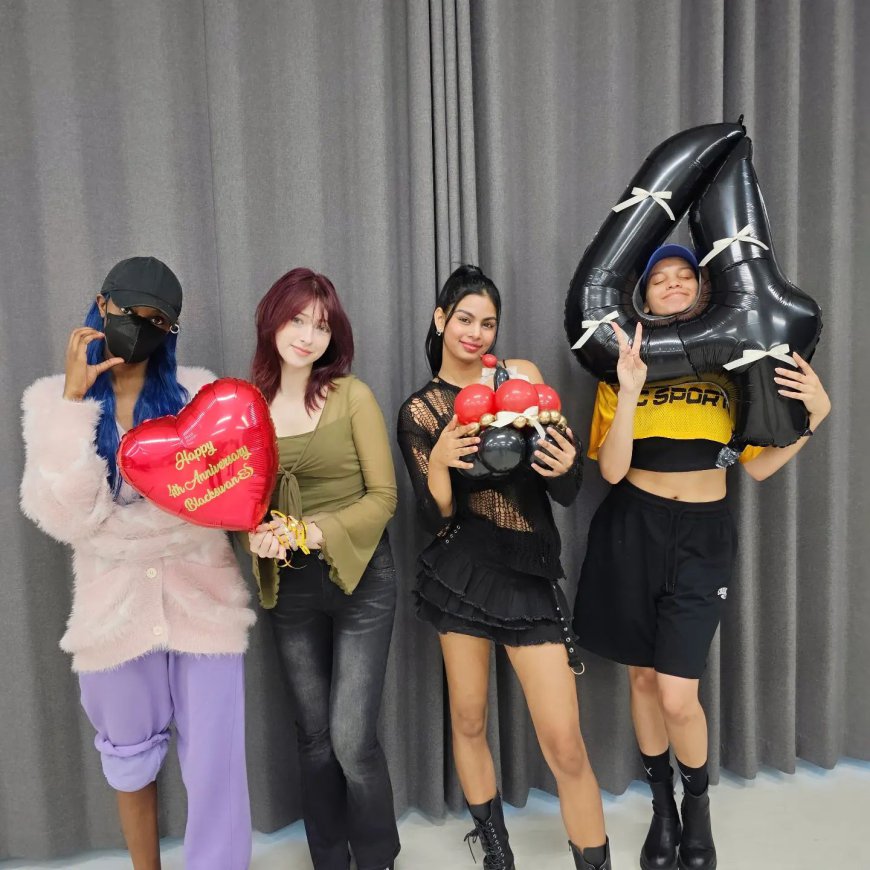
Debut: 2020
Label: DR Music
BLACKSWAN made headlines for being a truly global K-pop group. After a lineup change, the group now includes members from Belgium, Brazil, the USA, and India, with no Korean members. They’re known for breaking traditional boundaries, proving that K-pop is open to everyone. The group got famous for its cultural diversity and inclusivity, especially with Sriya who is known as the first Indian K-pop idol. Their bold image and empowering music have earned them a global fanbase.
2. XG
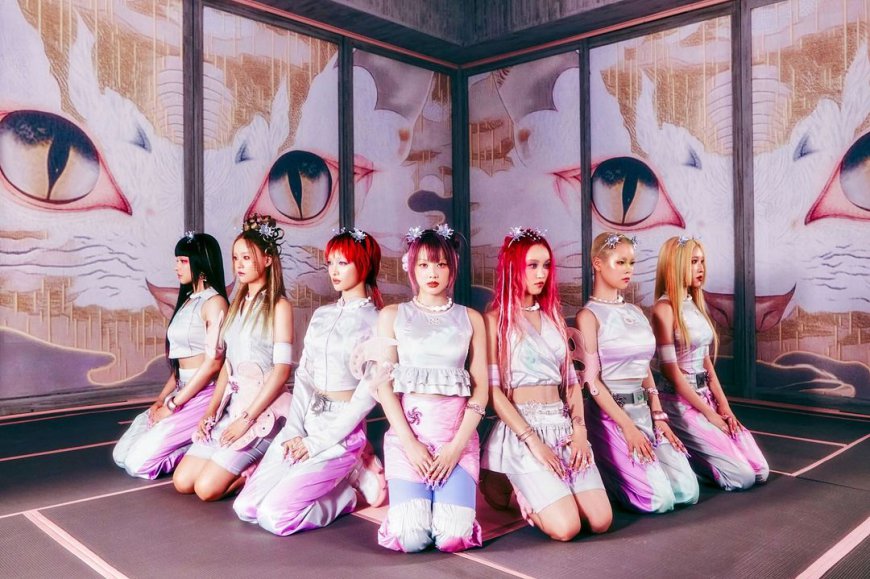
Debut: 2022
Label: XGALX
XG, short for "Xtraordinary Girls," is a 7-member girl group with all Japanese members. Despite being promoted as a K-pop group, XG’s music blends K-pop, hip-hop, and R&B influences. Their powerful performances and unique sound have gained attention worldwide. The group was created with the intention of bridging the gap between J-pop and K-pop, bringing a fresh perspective to the industry. Their hit singles like Shooting Star and Left Right have gone viral globally.
3. HONEY POPCORN
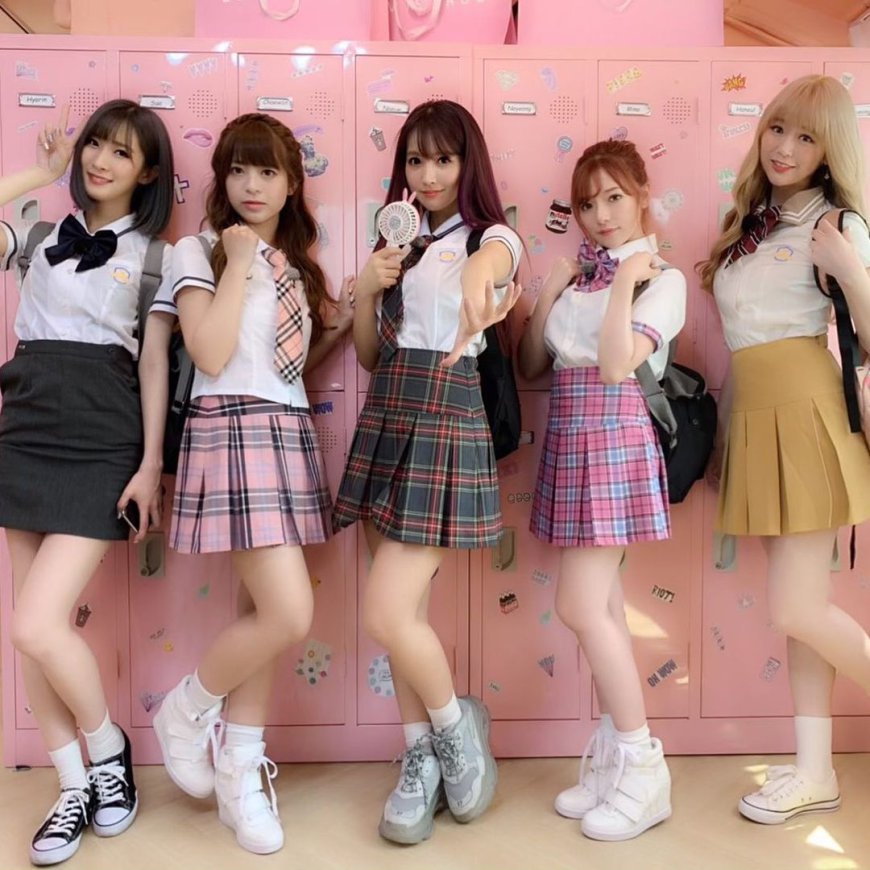
Debut: 2018
Label: Kyun Create
Honey Popcorn was an all-Japanese girl group in K-pop. The original lineup consisted of former Japanese adult film actresses, which sparked a lot of controversy in Korea. However, the group continued to release music and won fans for their cute and innocent concept. They faced criticism but also received praise for their perseverance and commitment to music.
4. KAACHI

Debut: 2020
Label: FrontRow Records
KAACHI became famous for being a UK-based K-pop group with no Korean members. Their lineup includes members from the UK, Spain, and the Philippines. While they’ve faced mixed reactions from fans, the group continues to release music and maintain a loyal international fanbase. Their debut challenged traditional norms but they proved that anyone can participate in the K-pop genre regardless of where they’re from.
5. TEM5IVE
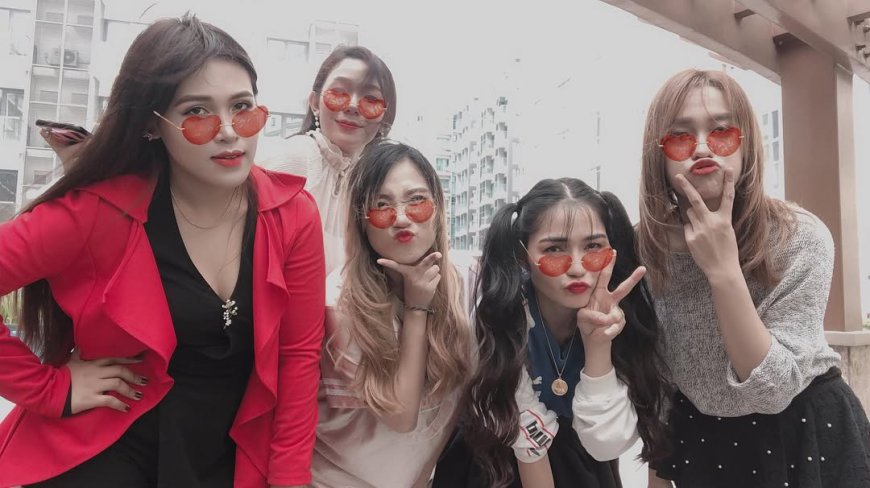
Debut: 2023
Label: Wild Entertainment
TEM5IVE (pronounced as "Team Five") is an all-Chinese K-pop group with no Korean members. The group is based in China, and they follow a K-pop-style production with polished visuals, choreography, and music videos.
6. Z-GIRLS and Z-BOYS
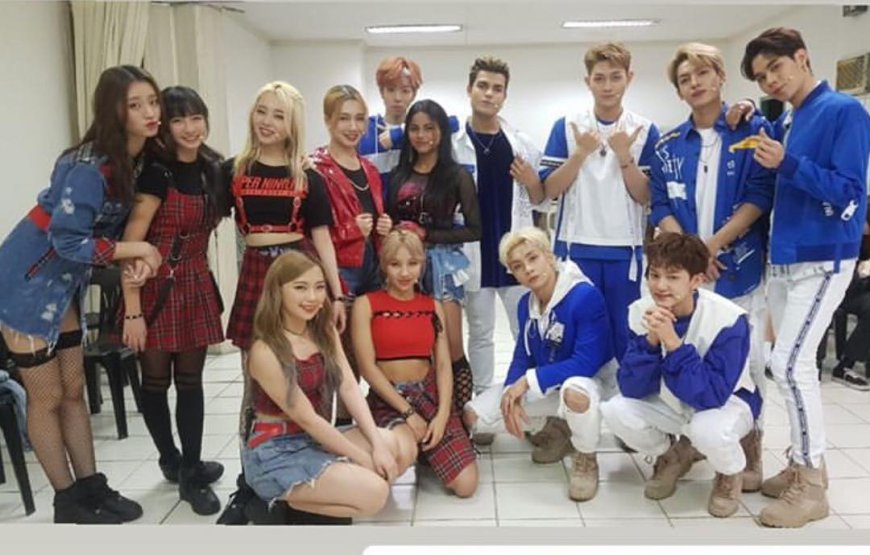
Debut: 2019
Label: Zenith Media Contents
Z-GIRLS and Z-BOYS were created to represent a globalized K-pop vision and featured members from countries like India, Vietnam, the Philippines, Thailand, Indonesia, and Japan. Neither group had any Korean members, although they trained in Korea and followed traditional K-pop promotion styles. These groups embodied the idea of K-pop as a global genre, not confined by nationality. Their members brought unique cultural influences to the table.
7. BEJ48/AKB48 (When Promoted as K-pop)
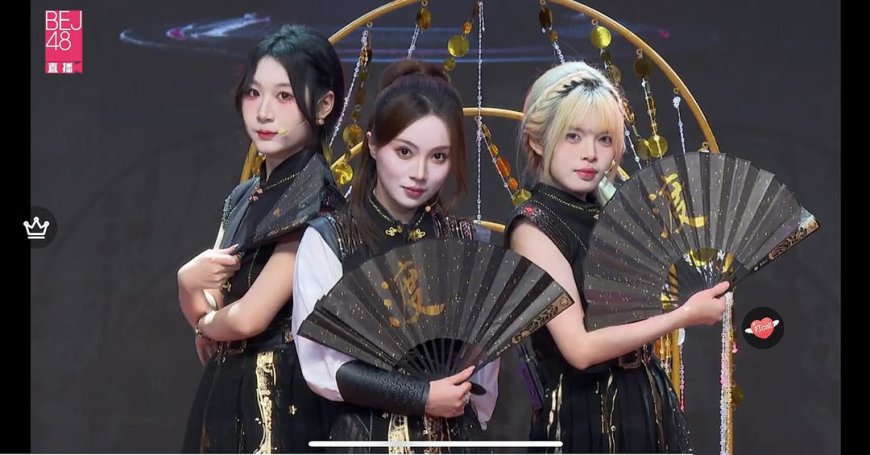
While primarily J-pop groups, BEJ48 and AKB48 have occasionally dipped into K-pop-style music and visuals for specific promotions. These groups feature all Japanese or Chinese members and show how K-pop’s influence crosses genre boundaries.
8. VIVIDIVA
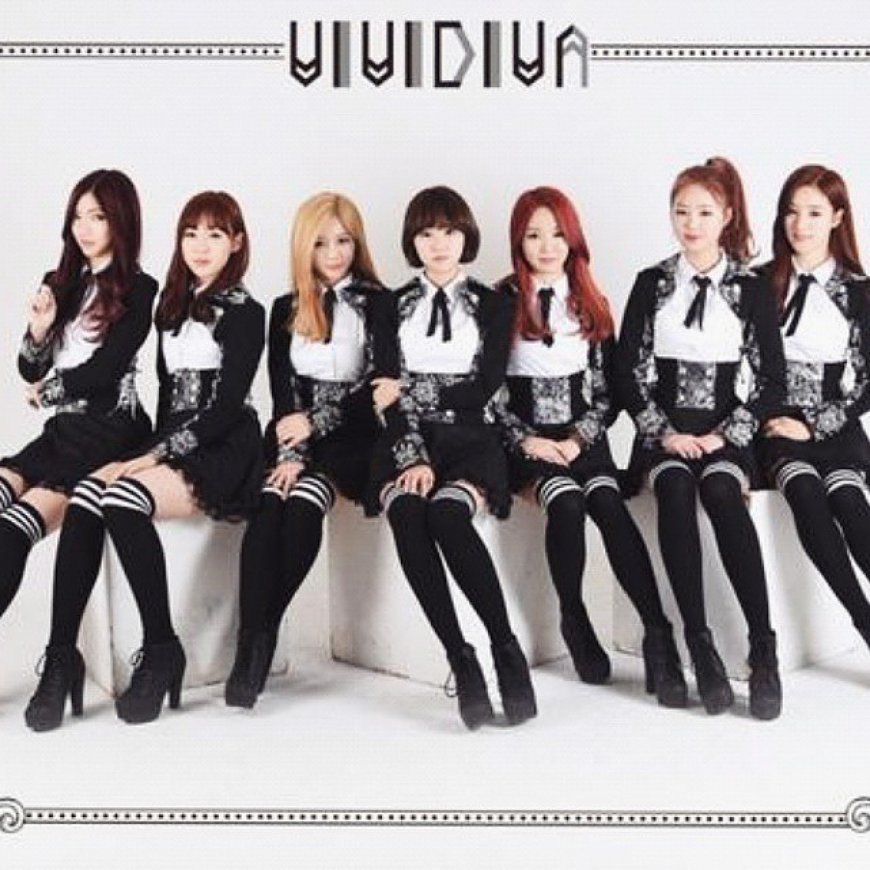
Debut: 2015
Label: DN Entertainment
VIVIDIVA started with Korean members but later transitioned to a lineup with entirely Chinese members under a rebranded concept. While not as well-known as others, their journey highlights how K-pop groups can evolve and embrace diversity.
Why These Groups Matter
These groups challenge the definition of K-pop by showing that it’s not limited to Korean artists. They represent:
-
Globalization of K-pop: With fans from all corners of the world, the genre continues to break barriers.
-
Cultural Exchange: Non-Korean idols bring their own cultural influences into K-pop, enriching its diversity.
-
Fan Inclusivity: These groups resonate with international fans who see themselves represented in the idols.
Challenges They Face
While these groups have found success, their journeys haven’t been smooth sailing:
-
Cultural Expectations: Korean audiences sometimes question whether non-Korean idols truly fit the K-pop mold.
-
Criticism from Fans: Some fans accuse these groups of cultural appropriation or being “inauthentic.”
-
Language Barriers: Singing in Korean while promoting globally is a balancing act for many of these idols.
The Industry’s Response
Entertainment companies are becoming more open to non-Korean idols, especially as K-pop becomes a global phenomenon. Groups like BLACKSWAN and XG are paving the way for more international acts to break into the industry, proving that talent and dedication matter more than nationality.
The Future of K-pop Without Borders
With K-pop continuing to dominate the global music scene, we can expect more groups with all-foreign lineups to emerge. These groups are proof that K-pop isn’t just a genre—it’s a global movement.
Whether you’re cheering for BLACK SWAN, stanning XG, or vibing with TEM5IVE, one thing’s for sure: K-pop is for everyone, and it’s only going to get bigger and more inclusive.
